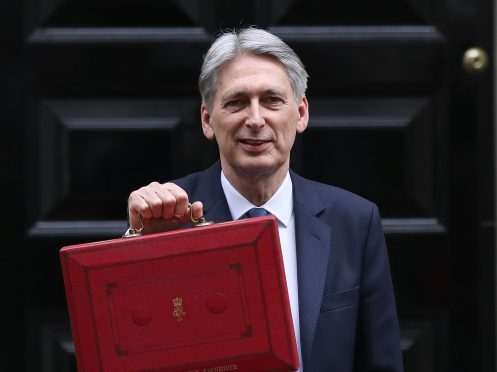An emergency £435 million package has been unveiled by Philip Hammond to help pubs and other firms facing major hikes in their business rates.
But some self-employed workers will face higher tax bills as the Chancellor announced plans to increase National Insurance contributions.
In his first Budget, Mr Hammond set out help – including a £1,000 cut for most pubs – in response to widespread anger and political pressure over the revaluation process.
Committing to longer term changes to the system, including better ways to tax online firms, the Chancellor acknowledged that the business rates revaluation had created some “hard cases”.
Under his package of reforms, he said firms set to lose small business relief would benefit from an additional cap on bill rises, limiting hikes in monthly bills to £50 for a year.
Pubs with a rateable value of less than £100,000 – some 90% of establishments – will be given a £1,000 discount on their rates in 2017.
Councils will be given a £300 million fund to deliver “discretionary relief“ to hard-pressed firms in their areas.
Under his reforms to National Insurance contributions, Mr Hammond said higher-paid self-employed workers will face rises of around 60p a week, raising an extra £145 million a year for the Exchequer by 2021-22.
Mr Hammond said the Budget sets out a a plan for a “brighter future” as the UK leaves the European Union.
With Prime Minister Theresa May expected to start the formal Brexit process within weeks, the Chancellor told the Commons: “As we start our negotiations to exit the European Union, this Budget takes forward our plan to prepare Britain for a brighter future; it provides a strong and stable platform for those negotiations.”
He added: “We are building the foundations of a stronger, fairer, more global Britain.”
Mr Hammond was given a boost as the Office for Budget Responsibility (OBR) sharply upgraded growth forecasts for 2017 from 1.4% to 2%.
In 2018 growth is forecast to slow to 1.6%, before picking up to 1.7%, then 1.9%, and back to 2% in 2021, the Chancellor said.
He acknowledged there was “no room for complacency” despite the buoyant growth figures and improved forecasts for the public finances.
The OBR forecasts borrowing in 2016-17 to be £16.4 billion lower than expected in November, at £51.7 billion. By 2021-22 the deficit is forecast to have shrunk to £16.8 billion.
The Chancellor said: “As we prepare for our future outside the EU we cannot rest on our past achievements.
“We must focus relentlessly on keeping Britain at the cutting edge of the global economy. The deficit is down, but debt is still too high. Employment is up, but productivity remains stubbornly low.
“Too many of our young people are leaving formal education without the skills they need for today’s labour market. And too many families are still feeling the squeeze, almost a decade after the crash.”
